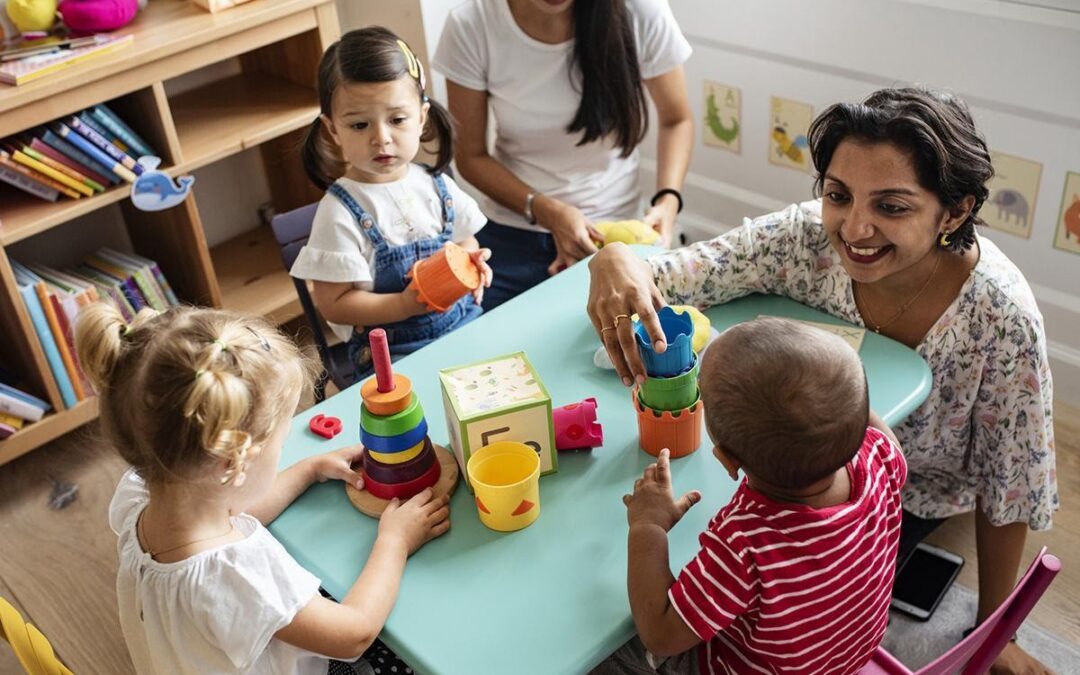In today’s fast-evolving social landscape, developing strong social skills from a young age is more crucial than ever. At Watch Me Shine, we prioritize nurturing these skills through structured peer socialization groups. These groups provide a safe and supportive environment where children can learn, interact, and grow together. By engaging with peers, children gain the essential social skills that are vital for academic success and personal happiness.
Peer socialization involves more than just play. It is about learning to cooperate, solve problems together, understand feelings, and communicate effectively. These skills are the building blocks for lifelong competences in teamwork and interpersonal relationships. At our facility, we carefully design socialization groups to meet the developmental needs of the children we serve, ensuring that each child can benefit from and contribute to the group dynamic.
By integrating peer socialization into our comprehensive therapy programs, which also include speech and occupational therapy, we offer a holistic approach to development. This not only enhances the social abilities of the children but also compleates their overall growth and readiness for the future challenges they will face.
Understanding Peer Socialization and Its Significance in Early Development
Peer socialization is not just about making friends; it’s an essential aspect of a child’s early development that influences how they interact with the world around them. We appreciate the profound impact that social experiences with peers can have on a child’s emotional, cognitive, and social growth. From as early as the toddler years, children who engage in group activities learn vital lessons about sharing, cooperation, and empathy. These early interactions lay the groundwork for problem-solving skills and emotional intelligence, which are critical as they navigate more complex social networks in later stages of life.
We ensure that each child is given the opportunity to interact in groups that align with their developmental level and needs. Through guided group activities, children learn to recognize social cues, adjust their behavior in group settings, and develop a sense of identity within a community. This foundational stage is crucial because it sets the tone for a child’s self-esteem and their ability to face new challenges and environments as they grow.
Key Elements of Effective Peer Socialization Groups
Certain elements are crucial to maximize the effectiveness of peer socialization groups. First, a safe and welcoming environment is essential so that all children feel secure to express themselves and engage fully. We prioritize creating settings that are not only fun and engaging but also structured enough to provide consistent learning experiences. Another key element is diversity; we ensure our groups include children from various backgrounds and with different skills to enrich the interaction and learning opportunities for everyone involved.
Additionally, skilled facilitators are critical. Our team is trained to observe, guide, and intervene when necessary to help manage dynamics and ensure that each session meets its developmental goals. Facilitators also play an important role in modeling positive social behavior and providing immediate feedback or reinforcement to children as they interact, helping to instill good behaviors and promote understanding among group members. Through these carefully managed interactions, children learn to negotiate, collaborate, and communicate effectively, building a set of skills that will serve them throughout their lives.
Measuring the Impact: Social Skills Gains from Group Interactions
We closely monitor the progress and impact of our peer socialization groups to ensure they are effectively contributing to the social development of each child. Through structured group interactions, we observe noticeable improvements in several key areas such as sharing, conflict resolution, and empathy. Regular assessments allow us to track these advancements and adapt our strategies to optimize the benefits for all participants. These evaluations often reveal significant increases in the children’s ability to initiate interactions, respond to their peers, and participate in team activities, which are critical components of daily life and academic success.
Parents and educators also report enhanced social behavior and reduced isolation, underscoring the value of these group experiences. By gathering feedback and outcomes, we are able to continuously refine our approach to ensure that every child can thrive socially. The insights gained from these sessions not only inform our practices but also help parents understand the ongoing progress their child is making in acquiring crucial life skills.
Tips for Parents: Enhancing Group Social Skills Outside Therapy Sessions
Recognizing that development extends beyond our sessions, we encourage parents to actively engage in enhancing their child’s social skills at home and in community settings. Simple activities like arranging playdates, participating in community sports, or enrolling in group classes such as dance or martial arts can replicate and reinforce the social interactions experienced in therapy. These activities provide valuable opportunities for children to practice their newfound skills in various contexts, fostering greater adaptability and confidence.
Moreover, we recommend regular family game nights or group storytelling sessions that involve turn-taking, listening, and collaborative problem-solving. These fun and engaging activities not only strengthen family bonds but also allow children to apply their social skills in a supportive home environment. By integrating these simple yet effective strategies into daily routines, parents can significantly contribute to their child’s social growth, helping them to build lasting friendships and successful interpersonal relationships.
Conclusion
At Watch Me Shine, we are dedicated to fostering the holistic development of children through our specialized therapies and peer socialization groups. Our comprehensive approach to children’s therapy is designed to equip children with the tools they need to navigate the complexities of social interactions and achieve personal growth. We believe that with the right support and opportunities, every child can learn to shine in their unique way.
If you’re interested in learning more about how our therapies can help your child develop essential life skills, please get in touch with us. Let us partner with you on this journey to enhance your child’s development and watch them shine.

